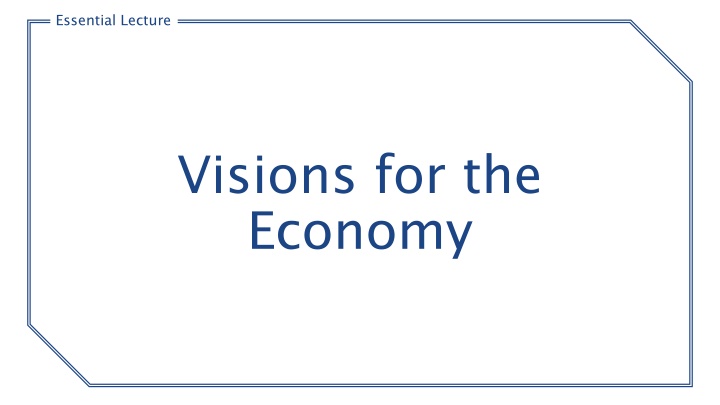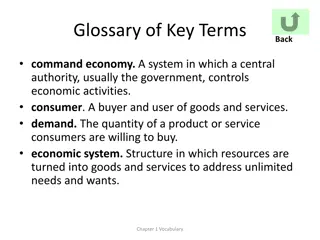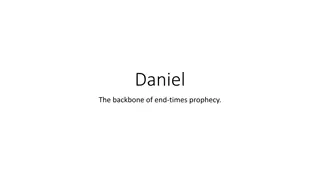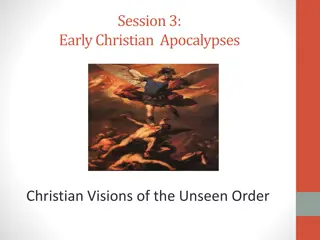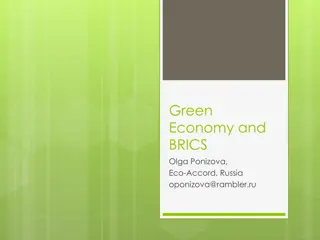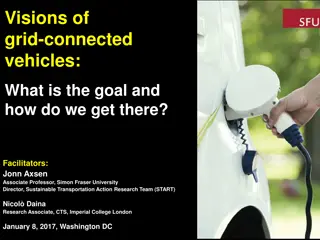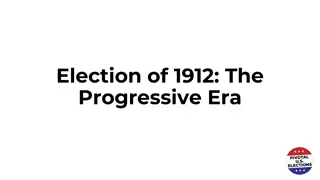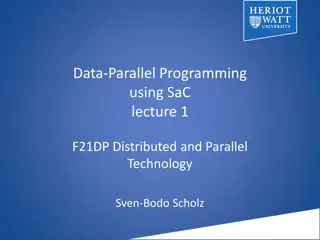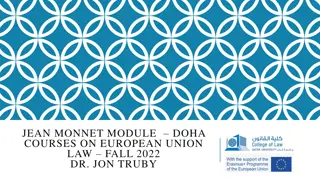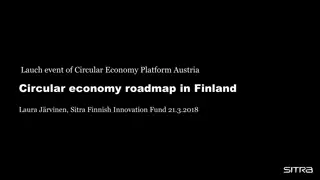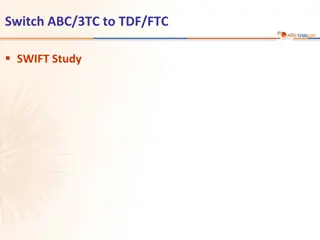Essential Lecture Visions for the Economy
Essential Lecture provides insights on various visions for structuring and organizing economies, ranging from short-term policy proposals to idealistic economic frameworks. Explore different economic visions, critically reflect upon them, and analyze core values. Recap readings on Radical Markets, Economic Bicameralism, and Degrowth, and dive into proposed solutions and policy implications.
Download Presentation

Please find below an Image/Link to download the presentation.
The content on the website is provided AS IS for your information and personal use only. It may not be sold, licensed, or shared on other websites without obtaining consent from the author.If you encounter any issues during the download, it is possible that the publisher has removed the file from their server.
You are allowed to download the files provided on this website for personal or commercial use, subject to the condition that they are used lawfully. All files are the property of their respective owners.
The content on the website is provided AS IS for your information and personal use only. It may not be sold, licensed, or shared on other websites without obtaining consent from the author.
E N D
Presentation Transcript
Essential Lecture Visions for the Economy
Visions for the Economy Ideas about how to structure and organise an economy. They can range from: short-term concrete policy proposals; to idealistic frameworks of utopian economic systems
Learning objectives The goal is not to create believers in visions. But instead: Awareness of different visions for the economy Critically reflecting upon visions for the economy Critically reflecting upon values
Recap of the readings Radical Markets: Property Is Only Another Name For Monopoly by Eric A. Posner and E. Glen Weyl from 2017. Economic Bicameralism: In Defense of Workplace Democracy: Towards a Justification of the Firm State Analogy by H l ne Landemore and Isabelle Ferreras from 2016. Degrowth: A theory of radical abundance by Jason Hickel from 2019.
Radical Markets: The reasoning Proposed Solution: A Harberger Tax Current System: Property rights Problem: Goal: Monopoly Power Efficiency Alternative Solution: Common ownership
Radical markets: The vision Intended outcome Policy proposal Logic An annual Harberger tax of 5-10% on assets. The tax is based on the self- assessed value of assets. Assets are always up for sale for the self-assessed value. The tax creates incentives for optimal self- assessment and ensures assets remain in circulation and find their most productive, or profitable, use. Allocative efficiency increases more than individual investment incentives are reduced.
Economic bicameralism: The reasoning Proposed Solution: Economic bicameralism Current System: Investor-owned companies Goal: Problem: Justice & legitimate governance Power concentration Alternative Solution: Market competition
Economic bicameralism: The vision Intended outcome Policy proposal Logic Economic Bicameralism means that large companies get: a Chamber of Capital a Chamber of Labour Firms as political entities Firms have moral dimensions as they distribute scarce resources, have contested power relations and must constantly (re)define their goals The objections to the firm-state analogy are invalid Democratising capitalism: Just and legitimate but also still efficient.
Degrowth: The reasoning Proposed Solution: Planned reduction of throughput Current System: Excessive consumption by the rich Problem: Ecological degradation Goal: Just transition Alternative Solution: Green growth
Degrowth: The vision Policy proposal: Reduced throughput high-income nations + improved standards of living Logic Intended outcome: Lauderdale paradox: private riches + public poverty Enclosure and privatisation of commons and public goods artificial scarcity competitive pressure After a certain threshold, gdp is no longer a good way of achieving wellbeing Ecological: Reduced destructive activities Social: Abundance of public wealth Ecological Social Regulation: Cap on material use, right to repair, ban on advertising in public spaces Work: Shorter work week, job guarantee and living wage Taxes: More public services: Healthcare, education, transport, housing, utilities and recreation On carbon, resource extraction, red meat and flying
Visions: An overview Vision Radical markets Economic bicameralism Degrowth Current system Property rights Investor-owned companies Excessive consumption by the rich Problem Monopoly power Power concentration Ecological degradation Proposed solution A Harberger tax Economic bicameralism Planned reduction of throughput Alternative solution Common ownership Market competition Green growth Goal Allocative & investment efficiency Justice & legitimate governance Just transition
Exercise 1: Implications of the visions for freedom and fairness 10 min: What do freedom and fairness mean? 15 min: Discussing the implications of the visions for freedom and fairness in duos with the help of the exercises sheet
Exercise 2: More policy ideas In duos reflecting on the assigned policy idea with the help of the exercises sheet First: Reading the article and/or watching the video Second: Discussing the questions and filling in the table
